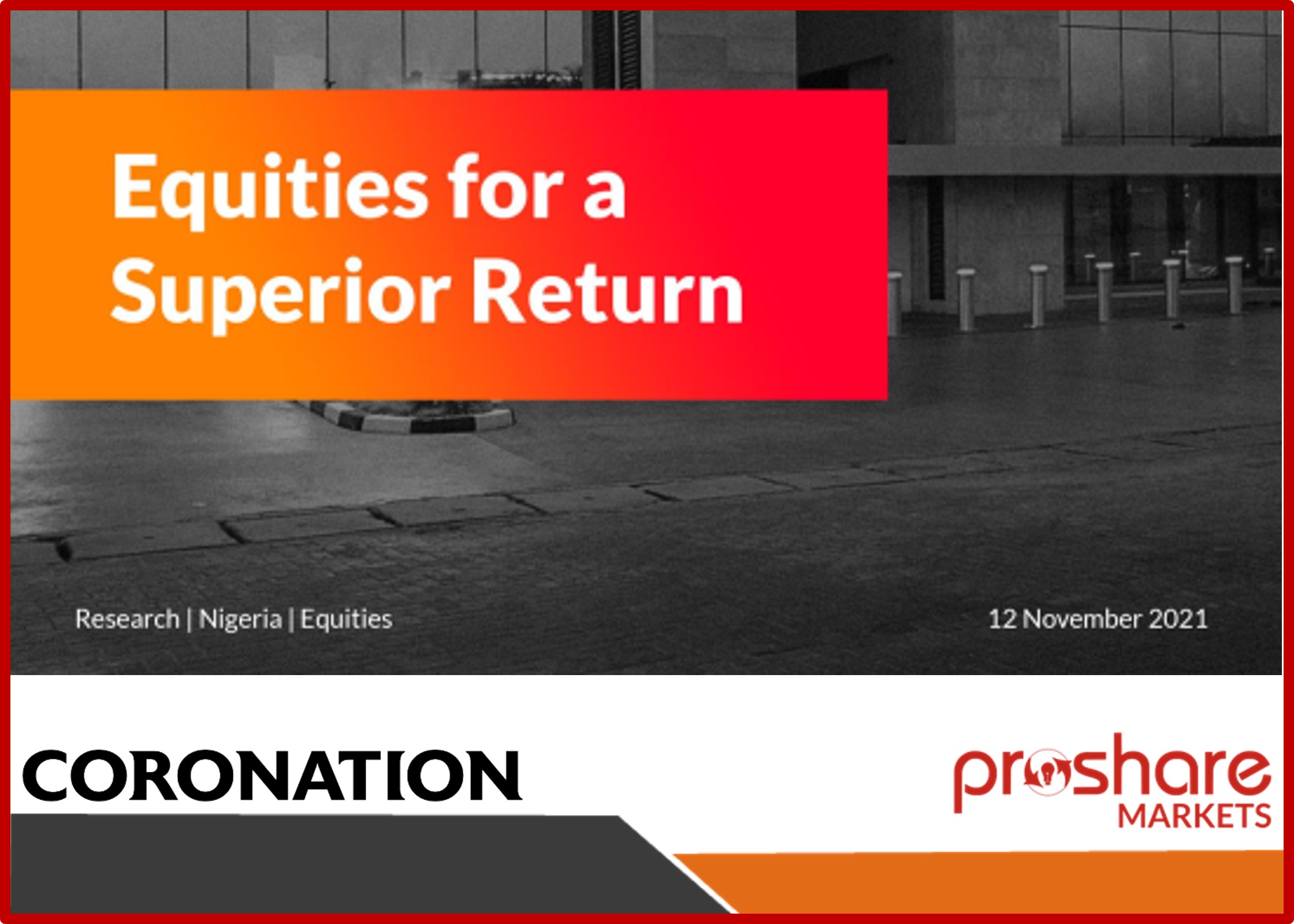Nigeria’s savers have a job on their hands, getting optimal returns for their precious Naira. One noticeable development last year was the growth of Money Market mutual funds. Why are they growing? Because they often yield more than bank deposits and more than T-bills. How do they achieve superior yields?
How Money Market Funds Beat Deposits and T-bills
Nigeria’s savers have a job on their hands. Market interest rates – the rates available on instruments such as T-bills and available from bank deposits – are woefully below the rate of inflation. Yet many savers have found that Money Market mutual funds offer superior yields, often in excess of rates offered by bank deposits and T-bill. Among mutual funds, Money Market funds grew by 12.2% last year, only surpassed by US dollar funds which grew by 21.8%. Money Market funds account 40.5% of all mutual funds, the largest segment in the industry.
How do Money Market funds provide superior returns? Given that they invest in T-bills, and T-billrates have been plummeting so far this year, what are they doing right? One of the advantages of Money Market funds is that they have a choice of investments to hold and therefore can vary (within limits) these investments according to yield.
One such instrument is the institutional bank deposit (see chart) which we contrast with the regular commercial deposit. Banks need to attract deposits from the open market but often do so in bulk, offering juicy interest rates for large sums of cash. They make these available to financial institutions that aggregate many different savers’ funds into large pools. Armed with large amounts of savers’ cash, financial institutions can negotiate superior interest rates from banks. Money Market mutual funds are among those financial institutions.
In recent weeks we have seen 1-year T-bills rates decline as many T-bill and bond redemptions have entered the financial system. The system currently is liquid and banks are also seeing their deposit rates trend downwards. But the rates they pay for large short-term fixed deposits (typically 90-days and 180-days) are still mostly above T-bill rates. One reason behind this is the Cash Reserve Requirement (CRR) which requires banks to hold at least 32.5% of their customer deposits with the Central Bank of Nigeria (CBN). This can leave banks short of cash when it comes to managing actual liquidity.
Are there any limits to this? Yes. Money Market mutual funds are generally required to hold at least 25% of their holdings in Tbills. Likewise, their own internal rules may limit what proportion of their funds may be held in bank deposits and there are rules on how much they can hold in ‘Other financial instruments’, a category that includes commercial paper. Different Money Market mutual funds have different rules.
Today the blend of T-bills with institutional bank deposits and other financial instruments permits most Money Market funds to indicate yields higher than: a) commercial bank deposits and b) T-bills. According to the daily report of the Fund Managers Association of Nigeria (FMAN, see fman.com.ng/pricelist) there are 14 Money Market mutual funds that, as of last Friday, gave indicative yields ranging between 7.95% and 14.02%, with the majority indicating yields over 12.00%. Of course, these are indicated yields and may change over time, but they are comfortably above those of commercial bank deposits and T-bills.
FX
Last week, the exchange rate at the Investors and Exporters Window (I&E Window) lost 0.05% w/w to close at N461.75/US$1. Elsewhere, the foreign exchange (FX) reserves of the Central Bank of Nigeria (CBN) slipped by 0.33% to US$37.07bn, as the CBN continues to intervene across the various FX windows.
The FX reserve position remains close to its historic high, and we doubt that the CBN wishes to see the exchange rate slip as general elections approach. Therefore, we believe that the current I&E Window rate, or something very close to it, can be maintained for at least several months.
Bonds & T-bills
Last week, the Federal Government of Nigeria (FGN) bond secondary market was bullish as the average benchmark yield for bonds fell by 31bps to close at 13.11%. Across the curve, the yields on the 3-year (-14bps to 12.25%) bond fell, while the yields on the 7-year (13.86%) and 10-year (14.19%) bonds closed flat. At the FGN bond auction, the Debt Management Office (DMO) is expected to offer N360.00bn (US$779.64m) across the February 2028 (reopening), April 2032 (reopening), April 2037 (reopening) and April 2049 (reopening) maturities. Our view remains that elevated Federal Government domestic borrowing will continue to drive yields upwards later in the year.
Activity in the Treasury Bill (T-Bill) secondary market was bullish as the average yield for Tbills fell by 200bps to 1.47%. The yield on the 314-day T-bill fell by 136bp to close at 3.87%. At the T-bill primary auction, the DMO allotted N220.53bn (US$477.60m) worth of bills. The auction recorded a total subscription of N1.04tn – the highest level since 7 December 2022 – implying a bid-to-cover ratio of 4.73x (vs 6.83x at the last auction). Consequently, stop rates across the 91-day (-171bps to 0.29%), 182-day (-253bps to 1.80%) and the 364-day (- 252bps to 4.78%, implying an 5.02% yield) bill declined. Elsewhere, the average yield for secondary market OMO bills fell by 95bps to 3.36%, while the yield on the 123-day OMO bill fell by 380bps to 3.03%. Elsewhere, the average yield for secondary market OMO bills declined by 1bp to 2.87%, while the yield on the 95-day OMO bill fell by 1bp to settle at 3.02%.
Oil
Last week, the price of Brent ended its two-week winning streak, ending down 1.11% to settle at US$86.66/bbl. Brent is up 0.87% year-to-date and is trading at an average of US$83.93/bbl, 15.30% lower than the average of US$99.09/bbl in 2022.
Despite optimism over demand recovery from China, renewed fears of an economic slowdown capped gains on oil prices as stronger-than-expected US Q4 GDP growth raised the odds of the US Federal Reserve keeping interest rates high for a long time. In addition, indications of an increase in crude exports from Russia's Baltic ports in early February added downward pressure in the short term. Elsewhere, the Organization of the Petroleum Exporting Countries and its allies (OPEC+) are expected to maintain current output levels at their 1 February meeting. We maintain that prices are likely to remain well above the US$75.00/bbl set in Nigeria’s government budget
Equities
Last week, the NGX All-Share Index gained 0.12% w/w to settle at 52,657.88 points. Consequently, its year-to-date return rose to +2.74%. Unilever Nigeria (+16.23% w/w), Geregu Power (+15.27% w/w) and Okomu Oil Palm (+9.76% w/w) closed positive while Nigerian Breweries (-9.69% w/w), Cadbury Nigeria (-4.55% w/w) and MTN Nigeria (-2.13% w/w) closed negative. Performances across the NGX sub-indices were broadly positive as the NGX Oil/Gas (+1.73% w/w) led the gainers, followed by NGX Banking (+1.65% w/w), NGX Insurance (+0.77% w/w), NGX Industrial Goods (+0.37% w/w) and NGX Pension (+0.32% w/w) while the NGX Consumer Goods (-1.09% w/w) and NGX-30 (-0.07% w/w) sub-indices closed lower.
Model Equity Portfolio
Last week the Model Equity Portfolio rose by 0.13%, very slightly ahead of the rise in the NGX All-Share Index at 0.12%. Yearto-date it has risen by 2.59% compared with a rise of 2.74% in the NGX All-Share Index, underperforming it by 15bps.
Unless tomorrow, Tuesday, turns out to be a market rout, then we shall have a January rally; but not much of a January rally. The rally has been rather tepid, with strong performance in the bank sector, but not much performance among the largest stocks by index weight, with the exception of Geregu which is up 7.4% year-to-date. Needless to say, the rally has not spread far among the mid-cap stocks which we interpret as a sign that the market's enthusiasm is limited.
Going into this week, we will reverse our attempts to make neutral weights out of Nigerian Breweries, Guinness Nigeria and Flour Mills of Nigeria, and we will make notional sales to cut these down to notional positions equivalent to half their index weights. As general elections hove into view, and with these general elections to be contested by three major parties, we think the market may be a little risk-averse for a while. Holding a few more percentage points of notional cash is unlikely to do much harm, in our view.
Next, we need to decide on some key overweight positions to take in future, since we cannot outperform without these. This is work in progress and we will report back.
 Lagos, NG • GMT +1
Lagos, NG • GMT +1











 343 views
343 views
















 Sponsored Ad
Sponsored Ad
 Advertise with Us
Advertise with Us









